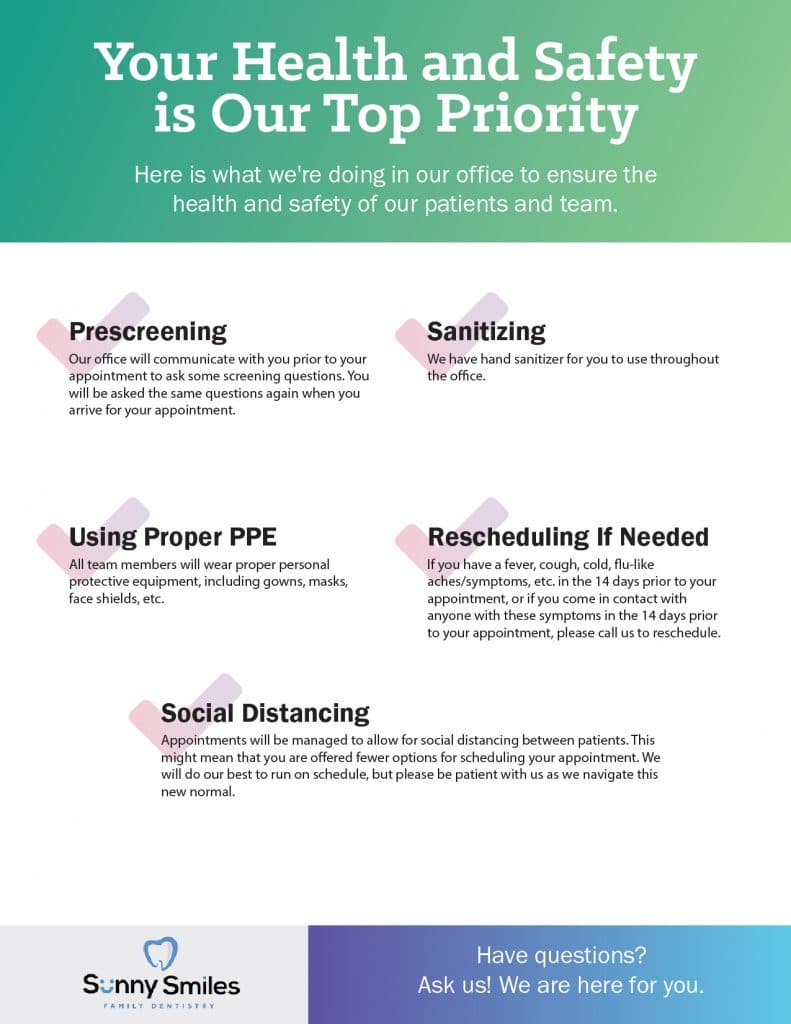 A meeting with your El Paso, TX dentist to talk about cosmetic dental work can be an exciting occasion. After all, you are taking steps that can lead you to some truly remarkable smile improvements! When you learn more about what treatment options are available to patients, you can be impressed at how much good a procedure can do, even if relatively little work is done on your tooth structure. In fact, one procedure can lead to valuable smile changes without any work on your teeth themselves. During a gum contouring procedure, your dentist can add length to short teeth, and even out your overall smile, by carefully removing excess gum tissues. (more…)
A meeting with your El Paso, TX dentist to talk about cosmetic dental work can be an exciting occasion. After all, you are taking steps that can lead you to some truly remarkable smile improvements! When you learn more about what treatment options are available to patients, you can be impressed at how much good a procedure can do, even if relatively little work is done on your tooth structure. In fact, one procedure can lead to valuable smile changes without any work on your teeth themselves. During a gum contouring procedure, your dentist can add length to short teeth, and even out your overall smile, by carefully removing excess gum tissues. (more…)
Finding A Local Dental Office You Can Count On
 Having a dental practice you know you can count on can have important benefits for your long-term smile health. When you come to our El Paso, TX dental practice for regular dental exams, you can look forward to vital preventive dental care. Because of these appointments, your risks from tooth decay and gum disease can be expertly managed, and you can ensure that any problem that might develop between appointments is dealt with before it progresses. Our practice is also ready to help you take on any problems that you might have in an emergency oral health situation, so you can be reassured that help for an injury or other urgent matter is easily available. (more…)
Having a dental practice you know you can count on can have important benefits for your long-term smile health. When you come to our El Paso, TX dental practice for regular dental exams, you can look forward to vital preventive dental care. Because of these appointments, your risks from tooth decay and gum disease can be expertly managed, and you can ensure that any problem that might develop between appointments is dealt with before it progresses. Our practice is also ready to help you take on any problems that you might have in an emergency oral health situation, so you can be reassured that help for an injury or other urgent matter is easily available. (more…)
Cavity Care And Your Appearance – What Should You Expect?
 It can be alarming to hear that you have a cavity, particularly when that cavity is already serious enough to cause an infection. The harm done by decay is certainly reason enough to worry, but you can also be concerned about what to expect after your treatment is completed. Will your smile still look the way it did before you needed restorative dental care? Will you be able to remain confident in how you look, while also trusting that your dental filling or dental crown can provide the support your tooth needs? Your El Paso, TX dentist’s office uses modern restorations, so your smile is not harmed by treatment. We can also make sure the treatment experience is more pleasant, and more comfortable. (more…)
It can be alarming to hear that you have a cavity, particularly when that cavity is already serious enough to cause an infection. The harm done by decay is certainly reason enough to worry, but you can also be concerned about what to expect after your treatment is completed. Will your smile still look the way it did before you needed restorative dental care? Will you be able to remain confident in how you look, while also trusting that your dental filling or dental crown can provide the support your tooth needs? Your El Paso, TX dentist’s office uses modern restorations, so your smile is not harmed by treatment. We can also make sure the treatment experience is more pleasant, and more comfortable. (more…)
Enjoy FREE Summer Shows At The Gene Roddenberry Planetarium!
 El Paso families can enjoy a chance to see the stars and avoid the heat this summer thanks to FREE shows at the Gene Roddenberry Planetarium! Throughout the summer months, visitors will be welcomed to enjoy special programs hosted at the venue. There will also be special programs narrated in Spanish for Spanish-speaking visitors. While the stars in the night’s sky can shine brightly, teeth stains may have left your smile dull. Our El Paso, TX dental practice can provide you with improvements in the form of a professional whitening treatment! (more…)
El Paso families can enjoy a chance to see the stars and avoid the heat this summer thanks to FREE shows at the Gene Roddenberry Planetarium! Throughout the summer months, visitors will be welcomed to enjoy special programs hosted at the venue. There will also be special programs narrated in Spanish for Spanish-speaking visitors. While the stars in the night’s sky can shine brightly, teeth stains may have left your smile dull. Our El Paso, TX dental practice can provide you with improvements in the form of a professional whitening treatment! (more…)
Can You Qualify To Receive Same-Day Implants?
 After losing a tooth, a patient can understandably be eager to have the problem treated as swiftly as possible. After all, the sooner the matter is addressed, the sooner you can go back to showing off your complete smile. Recovering from tooth loss also means improving on your dental function. While dental implants offer great benefits to patients who are going through prosthetic dental work, the delay between the implant’s placement, and its restoration, can be less than thrilling. Fortunately, it is possible to have your smile restored without this delay! Your El Paso, TX dentist’s office can offer same-day implants to patients who qualify. These special prosthetic appliances have a custom restoration attached to your implant, so the placement of your implant also gives you your replacement tooth! (more…)
After losing a tooth, a patient can understandably be eager to have the problem treated as swiftly as possible. After all, the sooner the matter is addressed, the sooner you can go back to showing off your complete smile. Recovering from tooth loss also means improving on your dental function. While dental implants offer great benefits to patients who are going through prosthetic dental work, the delay between the implant’s placement, and its restoration, can be less than thrilling. Fortunately, it is possible to have your smile restored without this delay! Your El Paso, TX dentist’s office can offer same-day implants to patients who qualify. These special prosthetic appliances have a custom restoration attached to your implant, so the placement of your implant also gives you your replacement tooth! (more…)
Make Time To Speak With Your Dentist About Your Toothache
 If your schedule is already full, you may be reluctant to make time for any other matters, even if something feels important. If that “other matter” you have to address is a persistent toothache, you should know that putting off a trip to see your dentist can lead to more discomfort, and the risk that the issue will grow worse. Your El Paso, TX dentist’s office is prepared to help you by identifying the reason for your pain, and performing the necessary restorative dental work. If the pain calls for urgent treatment, we do offer emergency dental appointments, so you can make sure the matter is addressed as soon as possible. (more…)
If your schedule is already full, you may be reluctant to make time for any other matters, even if something feels important. If that “other matter” you have to address is a persistent toothache, you should know that putting off a trip to see your dentist can lead to more discomfort, and the risk that the issue will grow worse. Your El Paso, TX dentist’s office is prepared to help you by identifying the reason for your pain, and performing the necessary restorative dental work. If the pain calls for urgent treatment, we do offer emergency dental appointments, so you can make sure the matter is addressed as soon as possible. (more…)
Giving Your Child Important Oral Health Support
 Your child’s developing smile deserves great protection. While you can recognize the risks that are associated with poor oral health, kids are typically less clear on why they should be so worried about problems like cavities. They can also be more tempted by sweets, and less effective at brushing and flossing on their own. Bringing your child to checkups with your El Paso, TX dentist can supply them with more than the cleanings and evaluations you receive during your routine dental appointments. These visits are also opportunities for your child to learn about why their oral health matters, and how they can do a better job keeping their teeth in top shape! (more…)
Your child’s developing smile deserves great protection. While you can recognize the risks that are associated with poor oral health, kids are typically less clear on why they should be so worried about problems like cavities. They can also be more tempted by sweets, and less effective at brushing and flossing on their own. Bringing your child to checkups with your El Paso, TX dentist can supply them with more than the cleanings and evaluations you receive during your routine dental appointments. These visits are also opportunities for your child to learn about why their oral health matters, and how they can do a better job keeping their teeth in top shape! (more…)
Questions About Dental Bonding? We Have Answers!
 You can ask your El Paso, TX dentist about more than just oral health services. If you want to do something about problems that are affecting your smile, you can certainly ask for information about our cosmetic dental services! Many people who are interested in making specific corrections to the way they look can have questions about dental bonding and contouring. With these treatments, it is possible to carefully fix issues that you have with the shape, size, or color of teeth that are less flattering to your overall appearance. This work can be completed in a short time, and without the use of permanent restorations. As a result, you may be able to see all of your desired changes after just one visit! (more…)
You can ask your El Paso, TX dentist about more than just oral health services. If you want to do something about problems that are affecting your smile, you can certainly ask for information about our cosmetic dental services! Many people who are interested in making specific corrections to the way they look can have questions about dental bonding and contouring. With these treatments, it is possible to carefully fix issues that you have with the shape, size, or color of teeth that are less flattering to your overall appearance. This work can be completed in a short time, and without the use of permanent restorations. As a result, you may be able to see all of your desired changes after just one visit! (more…)
Don’t Ignore An Issue Causing Dental Discomfort!
 While our El Paso, TX dental practice recommends regular semiannual dental exams, you should understand that you can reach out for care whenever you think something might be wrong with your smile. In fact, if you put off an appointment in spite of dental discomfort, you can allow the problem to worsen! Issues with persistent dental discomfort can warn you that you need treatment – rather than simply hoping the problem stays manageable until your next checkup, set time to see your dentist for restorative work. If the problem is serious, and causing you noticeable pain, know that we do offer emergency dental appointments. (more…)
While our El Paso, TX dental practice recommends regular semiannual dental exams, you should understand that you can reach out for care whenever you think something might be wrong with your smile. In fact, if you put off an appointment in spite of dental discomfort, you can allow the problem to worsen! Issues with persistent dental discomfort can warn you that you need treatment – rather than simply hoping the problem stays manageable until your next checkup, set time to see your dentist for restorative work. If the problem is serious, and causing you noticeable pain, know that we do offer emergency dental appointments. (more…)
Enjoy A Fundraising Ice Cream Party June 4 And June 6!
 On Tuesday, June 4, and Thursday, June 6, you can head to Marble Slab Creamery for a special fundraising ice cream party event! During this gathering, Luna Soleil Studios and Summer-Set Pictures will be hosting activities in efforts to generate funds for their filmmaking endeavors. In addition to tasty treats, there will be plenty of kid-friendly activities, special characters, music, and more! Ice cream can be a wonderful – and refreshing – summer treat. While it can be hard to resist something sweet and cooling in the hot weather, remember that too many sugary treats can be harmful to your smile. To make sure your teeth are in good health, schedule your next dental checkup at your El Paso, TX dentist’s office! (more…)
On Tuesday, June 4, and Thursday, June 6, you can head to Marble Slab Creamery for a special fundraising ice cream party event! During this gathering, Luna Soleil Studios and Summer-Set Pictures will be hosting activities in efforts to generate funds for their filmmaking endeavors. In addition to tasty treats, there will be plenty of kid-friendly activities, special characters, music, and more! Ice cream can be a wonderful – and refreshing – summer treat. While it can be hard to resist something sweet and cooling in the hot weather, remember that too many sugary treats can be harmful to your smile. To make sure your teeth are in good health, schedule your next dental checkup at your El Paso, TX dentist’s office! (more…)




